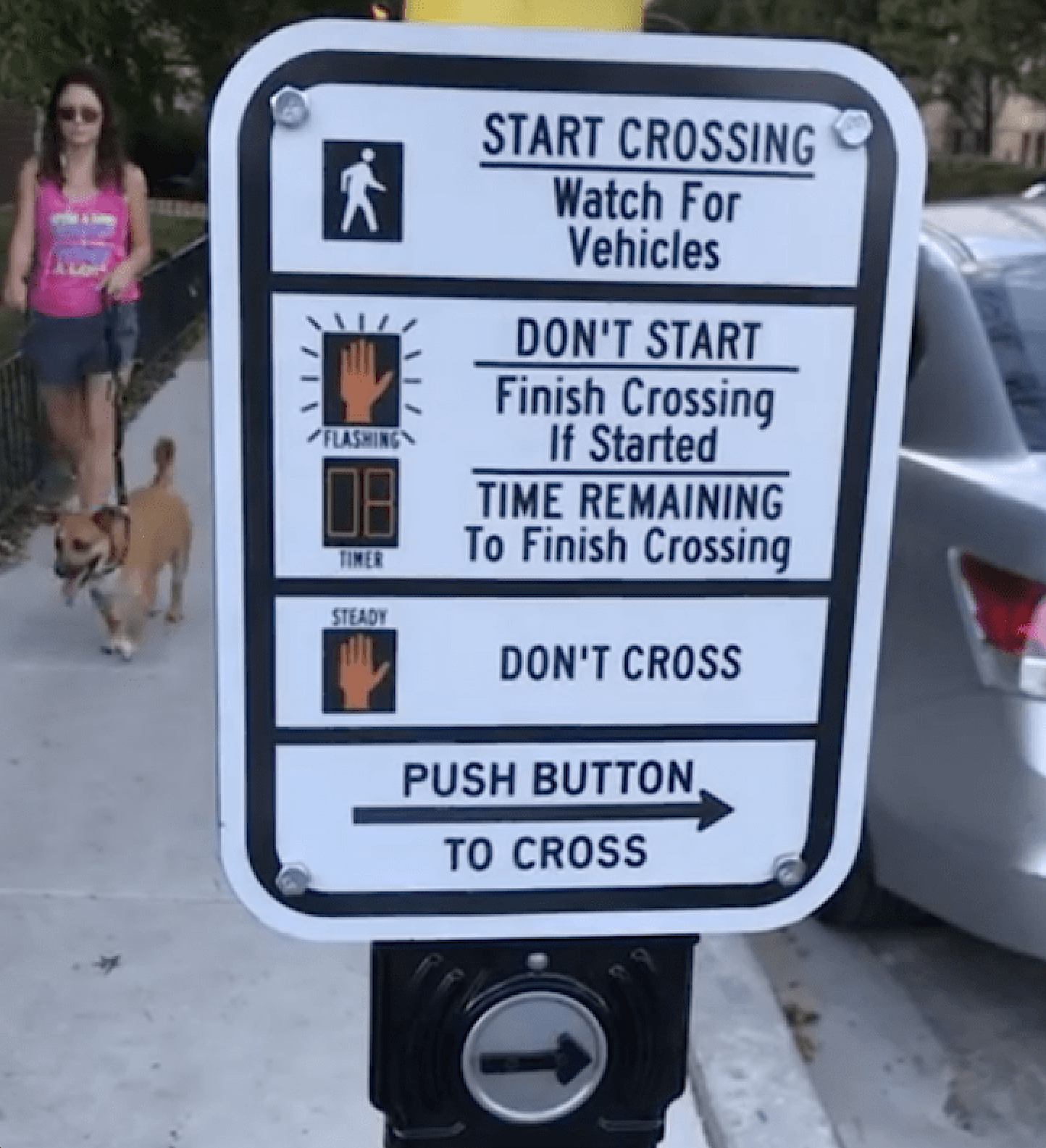
Earlier this month, a federal judge ruled that the City of Chicago must install about 2,000 accessible pedestrian signals over the next ten years.
An APS is a push-button device with tactile and auditory information that conveys information like "Walk" or "Don't Walk" to help people with visual and/or auditory impairments cross the street. Because the button doesn’t actually activate the walk signal, there's no need push it if you don’t require the audible cue, so theses devices are not to be confused with much-despised "beg buttons."
This new order for widespread installation of APS is a long time coming, with the first domino falling all the way back in 2019, when Disability Rights Advocates, a nonprofit disability rights legal center, and the law firm Proskauer Rose LLP filed a class action lawsuit.
"We are thrilled with the court’s Remedial Order, which will completely reshape the pedestrian infrastructure and lead to historic accessibility improvements," said DRA's Supervising Attorney Rachel Weisberg in a statement.
"This landmark decision is a win for civil rights, public safety, and equal access," stated Proskauer Rose Senior Counsel Eddie Young. "It is a victory for all blind and low vision pedestrians in Chicago and will bring long-overdue systemic change."
The lawsuit was on behalf of the American Council of the Blind of Metropolitan Chicago and three individual plaintiffs. It argued that the City’s foot-dragging on APS, with only a fraction of the number of accessible signals installed as peer cities, is discriminatory towards people with visual impairments.
In April of 2022, the U.S. Department of Justice stepped in with its own investigation into Chicago’s sluggish APS practices. Then in 2023, U.S. District Judge Elaine Bucklo ruled that the City’s failure to install the signals at a significant number of intersections was discrimination.
"This decision should send a strong message to communities around Illinois and across the country that the safety of all pedestrians, including those who are blind or visually impaired, must be taken into account," stated Ray Campbell, one of the plaintiffs and president of the Illinois Council of the Blind.

"I am excited that we, as blind people, will now have access to the same information from traffic signals that our sighted counterparts have," plaintiff Ann Brash said in a statement. "This will go a long way toward ensuring that all blind pedestrians can safely cross Chicago streets."
"It is such a good feeling to know that we will feel so much more reassured and so much safer when crossing busy street due to accessible pedestrian signals," stated plaintiff Maureen Heneghan.
In 2019, less than one half of one percent of Chicago’s 2,800-plus signalized intersections featured accessible pedestrian signals, according to a press release from the plaintiffs. By April 2022, there were still only 15 APS intersections. In January of 2023, there were merely 33 intersections with the signals. In 2025, only 3 percent of our city's signalized intersections, roughly 84, have the technology. Under the new Court orders, Chicago will need to equip at least 71 percent of its signalized intersections, approximately 1,988, with APS over the next decade.
After installing the first 71 percent of signalized intersections, the City will then have five years to install APS at the remaining 29 percent, roughly 812 sites, unless it can demonstrate that people with visual impairments already have meaningful access to the pedestrian grid. In addition, the court order sets benchmarks for the minimum number of APS that must be installed, establishes a process for residents to ask for the signals at specific locations, and requires the City to prioritize installing APS at dangerous intersections.
While Streetsblog didn't hear back by press time from other local organizations that advocate for disability rights, it's safe to assume they're applauding the court decision. Back in April 2023, Courtney Cobbs, cofounder of the sustainable transportation advocacy group Better Streets Chicago (and a former Streetsblog co-editor) said BSC wanted to see accessible signals become ubiquitous in our city. "There's still more to be done to make our streets safe and accessible for people with disabilities and we hope the [recently elected Mayor Brandon Johnson administration] will actively seek the input of people with disabilities and quickly translate it into policy and infrastructure changes across the city."
As part of the court decision, the City of Chicago will also be responsible for establishing an effective APS compliance program to ensure that the signals are installed correctly, maintained properly, and that repair requests are collected and analyzed. Overseeing that will be an Independence Monitor appointed by the court. The City is also required to establish a Community Advisory Committee composed of people with visual disabilities and organizations that serve the blind community. In addition, the Chicago Department of Transportation must work with a Certified Orientation and Mobility Specialist to provide expert input on APS installation and maintenance.
Obviously, this court decision is going to involve a lot of long-delayed investment and work from the City of Chicago. But it's good to know that "That Toddlin' Town" is now required to become a more walkable town.

Did you appreciate this post? Streetsblog Chicago is currently fundraising to help cover our 2025-26 budget. If you appreciate our reporting and advocacy on local sustainable transportation issues, please consider making a tax-deductible donation here. Thank you!




